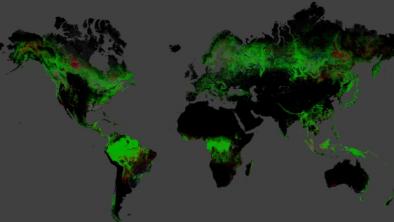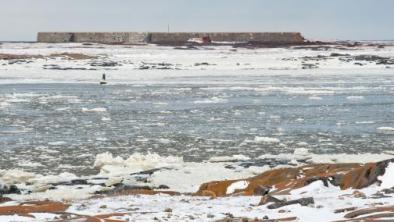'Stunning' forest-protection deal met with caution in B.C.
The Vancouver Province

Photo: Joe Foy, the Wilderness Committee's B.C.-based national campaign director, says the agreement does not mean a halt to logging, but more talking between some forest companies and some environmental groups. The WC was not one of the organizations involved in the negotiations.
Photograph by: Arlen Redekop, PNG file
The Canadian Boreal Forest Agreement, announced Tuesday in Toronto, applies to 72 million hectares of forest licensed to the 21 members of the Forest Products Association of Canada, an area roughly the size of Texas.
The deal, reported first by The Province last week, will see new logging suspended in 29 million hectares of the country's caribou habitat, including a section in northern B.C. In exchange, environmental groups, such as ForestEthics and Greenpeace, will suspend all international "Do Not Buy" campaigns and eventually endorse all FPAC products.
As part of the three-year-deal, forest companies will "commit to the highest environmental standards of forest management" and work co-operatively with the country's nine-leading environmental groups to develop conservation plans for endangered caribou.
"The environmental groups will no longer have to worry about economic progress at the cost of environmental protection," said Avrim Lazar, president and CEO of FPAC. "It's gratifying to see nearly a decade of industry transformation and hard work greening our operations, is culminating in a process that will set a forestry standard that will be the envy of the world."
Hailed by signatories as a precedent-setting venture, some environmental groups, however, are cautioning the deal goes only so far in addressing long-term conservation needs.
Joe Foy, the Wilderness Committee's B.C.-based national campaign director, whose group was not part of the deal, said the agreement does not mean logging in caribou habitat has stopped.
"That has not happened," he said. "What this agreement is, is for logging companies and some environmental groups to begin to talk. Meanwhile, other groups like the Wilderness Committee are left with the dirty business of trying to defend the habitat that is currently being logged."
According to details of the agreement, logging companies will indeed harvest roughly 685,000 hectares of forest in caribou habitat within the three-year time frame outlined in the deal. It is not known how much, if any, of B.C.'s forest is included in this total.
The deal does state, however, that there will be no harvesting or road building in close to 1.5 million hectares of caribou range in the province.
Chloe O'Loughlin, the executive director of the B.C. chapter of the Canadian Parks and Wilderness Society, described the deal as "stunning" but added a lot of work still needs to be done to protect the province's endangered caribou population, estimated to be around 1,000.
Specifically, she said the B.C. government must make law a series of draft regulations relating to oil and gas activity in the area.
She said there was no way forest companies would abide by the new agreement unless oil and gas companies were also required to respect the habitat.
"I'm sure they wouldn't agree to defer something and then see it thrashed by the oil and gas industry," she said. "Put it off limits to forestry and then put it off limits to oil and gas."
A third-party auditor will regularly monitor the progress under the agreement to ensure all objectives are met, said Lazar.

